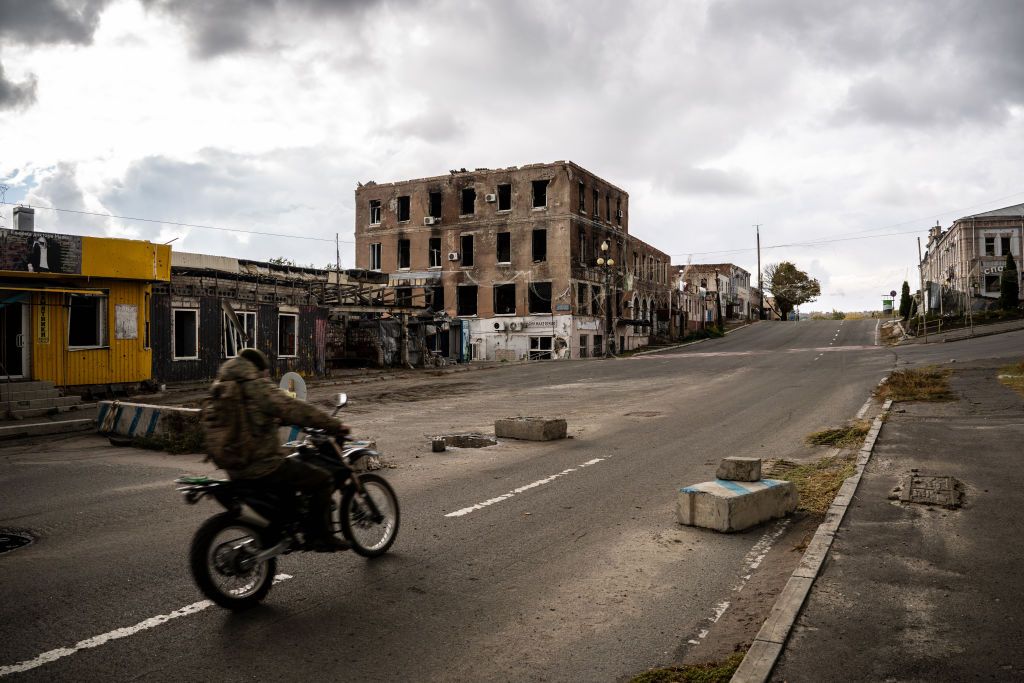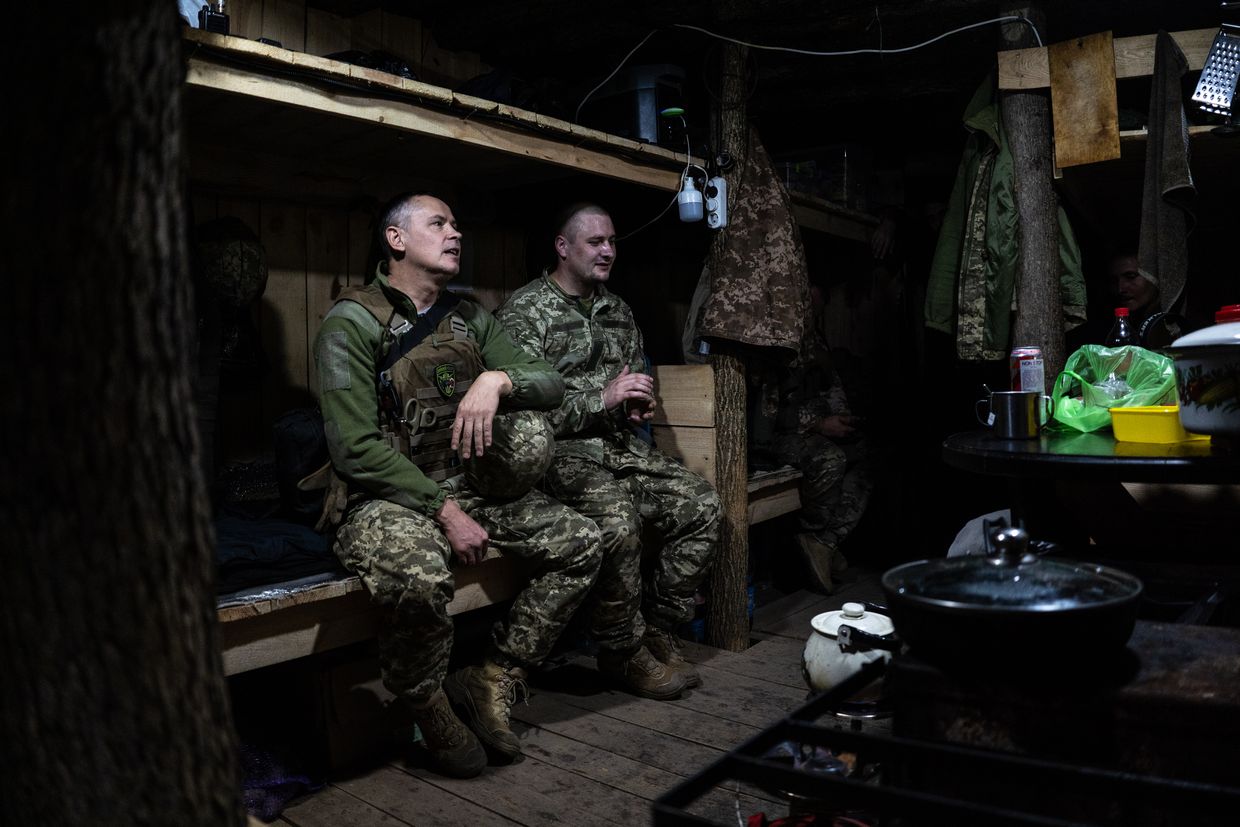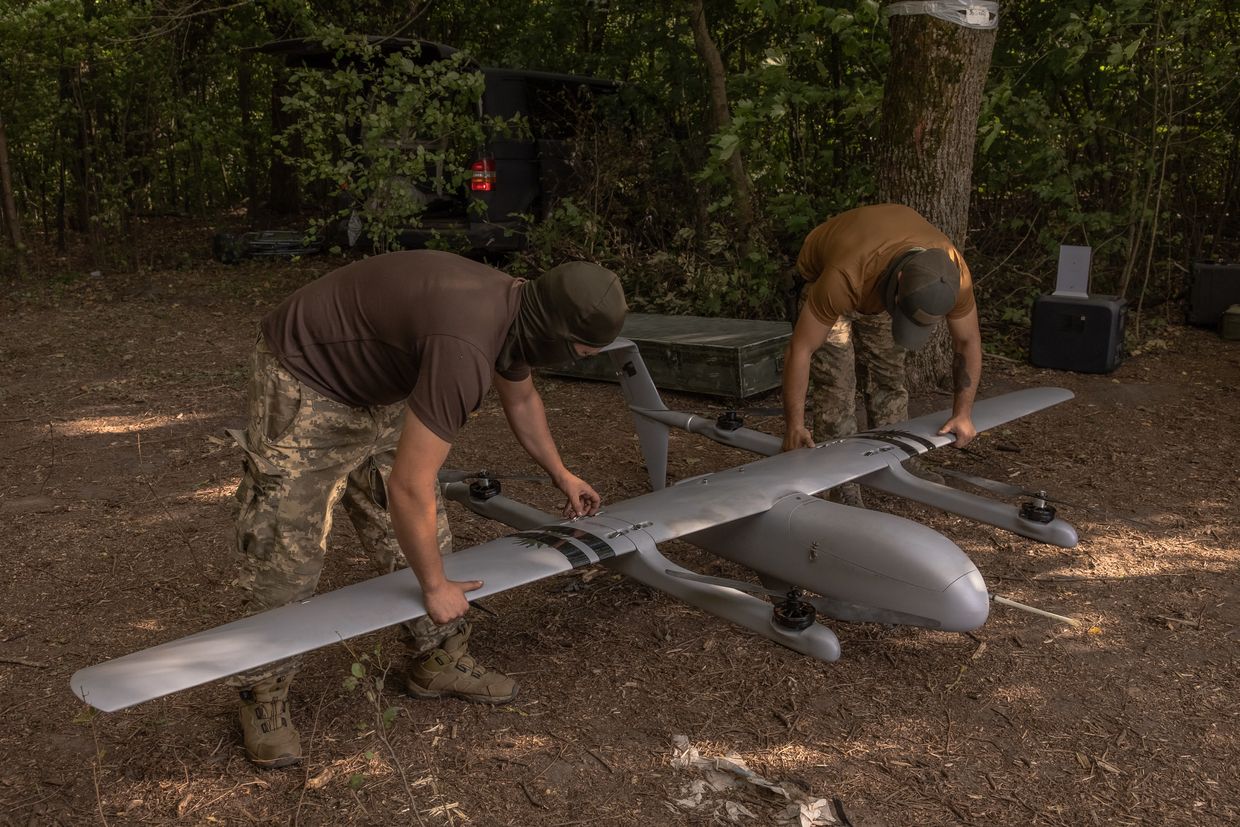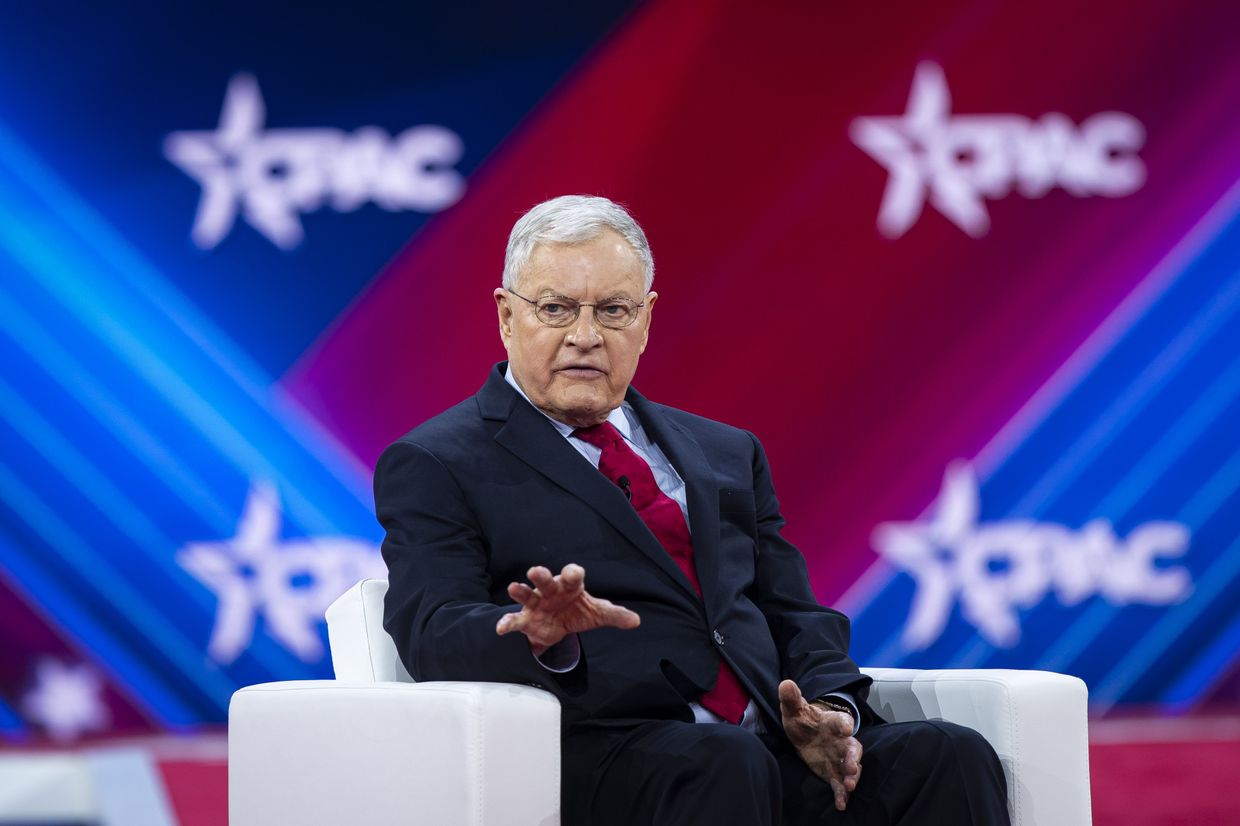Ukraine war latest: Ukrainian forces regain control of Novyi Komar village in Donetsk Oblast

Key developments on Dec. 5:
- Ukrainian forces regain control of Novyi Komar village in Donetsk Oblast
- At least 6 Ukrainian mayors held captive by Russia, Zelensky says
- Ukrainian forces to receive 30,000 DeepStrike drones in 2025 as part of Zelensky's resilience plan, minister says
- 'There will be no Yalta-2 or Minsk-3,' Ukrainian FM says at OSCE meeting
Ukrainian troops have driven Russian units out of Novyi Komar village in Donetsk Oblast, Nazar Voloshyn, the spokesperson for the Khortytsia group of forces, told Suspilne media on Dec. 5.
Novyi Komar, a village with a pre-war population of less than 500 people, is located about 50 kilometers (31 miles) west of the Russian-occupied town of Vuhledar.
"The enemy was driven out of there," Voloshyn said. "The village of Novyi Komar is under the control of the (Ukrainian) Defense Forces."
A day before, crowd-sourced monitoring website DeepState reported that soldiers of the 48th Separate Assault Battalion regained control of the village. Russian forces suffered heavy losses, and some Russian soldiers fled to the highway near the village, according to DeepState.
At the same time, Ukraine's counteroffensive actions are not as significant as Russia's ongoing assaults in the country's east. Russia captured 234.79 square kilometers (90 square miles) in one week in mid-November, which is the highest number in 2024, according to the independent Russian outlet Agentstvo.
Ukrainian officials have also increasingly raised concerns about a possible new Russian push in Zaporizhzhia Oblast in the south, just as Russian forces continue to advance in the east, focusing their efforts near Pokrovsk and Kurakhove in Donetsk Oblast.
Russia's advance has picked up pace over the past months as Ukraine's military struggles to replenish its ranks, and Western arms are not flowing in as fast as Kyiv has hoped.
At least 6 Ukrainian mayors held captive by Russia, Zelensky says
At least six Ukrainian mayors and community heads remain in Russian captivity, President Volodymyr Zelensky said on Dec. 5 during an address to the human rights community.
Zelensky confirmed that Yevhenii Matvieiev, the mayor of occupied Dniprorudne in Zaporizhzhia Oblast, died in Russian captivity. Zaporizhzhia Oblast Governor Ivan Fedorov said that Matvieiev was tortured to death.
Matvieiev was captured in March 2022 while trying to assist residents of his community.
"They are among thousands of Ukrainians who are innocent but have been in captivity for years. And not only since 2022, but also since 2014," Zelensky said.
The president said that Ukraine is doing everything possible to secure the release of its citizens.
Tens of thousands of Ukrainians, both civilian and military, remained in Russian captivity as of November, according to Ukrainian Ombudsman Dmytro Lubinets. Of them, over 19,500 are Ukrainian children. Only 3,767 of the abducted Ukrainian childern have been freed.
Zelensky criticized the global response, noting the lack of significant action to stop Russia's crimes and punish those responsible.
"There are still few voices in the world that speak about Ukrainian children abducted by Russia," Zelensky said, adding that discussions about "freezing" the war often ignore the fate of millions of Ukrainians and hundreds of thousands of children in occupied territories.
Zelensky expressed regret over the fading international focus on Russian war crimes.
"Even the most large-scale Russian war crimes are gradually being forgotten by many in the world and in Europe, at the political level, among those who could act to fix everything," he emphasized.
Since the start of Russia's full-scale invasion, at least 177 Ukrainian prisoners have died in captivity, according to Victoria Tsymbaliuk of the Ukrainian Coordination Center for the Treatment of Prisoners of War.
Ukrainian forces to receive 30,000 DeepStrike drones in 2025 as part of Zelensky's resilience plan, minister says
The Ukrainian military will get over 30,000 DeepStrike attack drones in 2025 within President Volodymyr Zelensky's resilience plan, Defense Minister Rustem Umerov announced on Dec. 5.
According to Umerov, DeepStrike drones are of the new generation, capable of "operating autonomously over long distances and hitting targets with high accuracy."
"We are demonstrating to the world that Ukraine is capable of innovation and technological independence. Even in wartime, we are developing cutting-edge production and strengthening our defense capabilities," Umerov said.
Zelensky presented a 10-point resilience plan to the Ukrainian parliament on Nov. 19, which includes measures to stabilize the front line, increase the technological capabilities of Ukrainian forces, and overcome bureaucracy in the army.
The production of part of the DeepStrike drones that will be supplied to the Ukrainian army next year was financed by international partners who invested in the Ukrainian defense industry, according to Umerov.
The minister did not say how these drones will be distributed among Ukrainian troops.
Ukraine is working to scale up domestic defense production, aiming to produce 1.5 million drones by the end of 2024.
There is a "significant volume" of new and long-term orders for first-person-view (FPV) drones, reconnaissance drones, long-range drones, and missile-drones, Zelensky said on Dec. 3.
Kyiv employs long-range drones to strike deep into Russian territory, targeting military infrastructure such as airfields and logistics, as well as oil refineries and depots.
'There will be no Yalta-2 or Minsk-3,' Ukrainian FM says at OSCE meeting
Ukrainian Foreign Minister Andrii Sybiha, speaking at the Organization for Security and Co-operation in Europe (OSCE) meeting in Malta on Dec. 5, strongly opposed any agreements resembling past Yalta or Minsk deals that could legitimize Russian aggression.
The comments come as U.S. President-elect Donald Trump pledged to put a swift end to the war in Ukraine and bring both sides to the negotiating table.
"Russia wants a second Yalta or at least a third Minsk. It wants a world of zones of influence where power dictates the rules, changes borders, and deprives people of their right to freedom. But we are clear: there will be no Yalta-2 or Minsk-3," Sybiha said during a closed-door meeting.
This referenced the 1945 Yalta conference on dividing post-World War II spheres of power in Europe between the Soviet Union and Western powers and the unsuccessful 2014-15 Minsk I and II agreements on ending the war in Donbas.
The minister accused Russia of using "peace plans" as a pretext to continue its aggression.
"We have seen what Russian peace means in Bucha, Mariupol, Izium. For them, it means mass graves, ruins of cities, and killed Ukrainian civilians. Ukrainian children are abducted, their names are changed, and they are forcibly assimilated into Russian culture," he said.
Sybiha added that Russia is not genuinely interested in negotiations, urging the international community to focus on Moscow's actions rather than its words. "Russia continues to expand the war," he warned.
The OSCE meeting in Malta was also attended by Russian Foreign Minister Sergey Lavrov, marking his first visit to the EU since the start of the full-scale war. Sybiha called Lavrov a war criminal and left the OSCE plenary hall in protest ahead of Lavrov's address. Several other foreign ministers and diplomats followed suit in a coordinated walkout.














